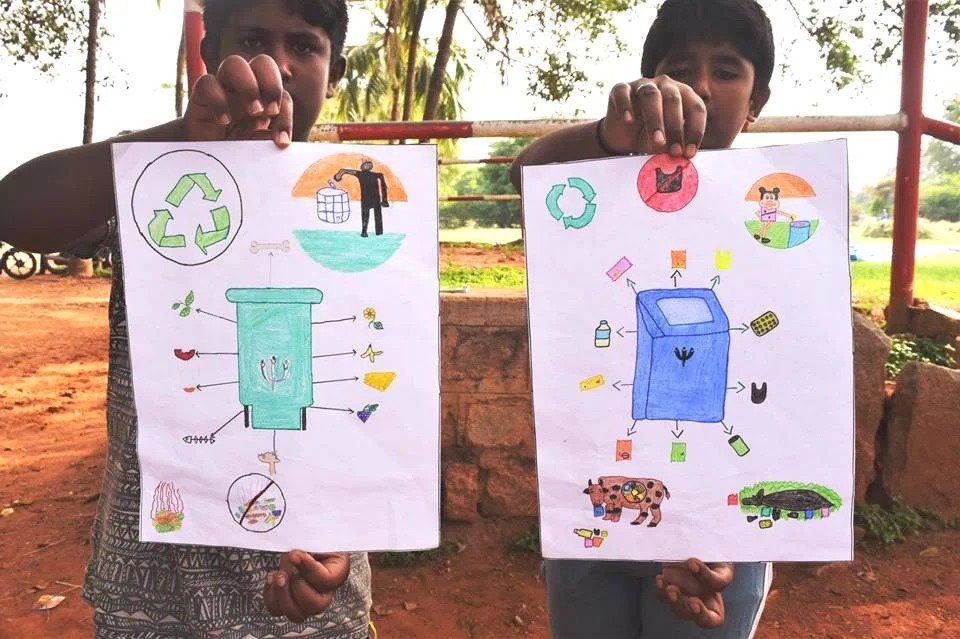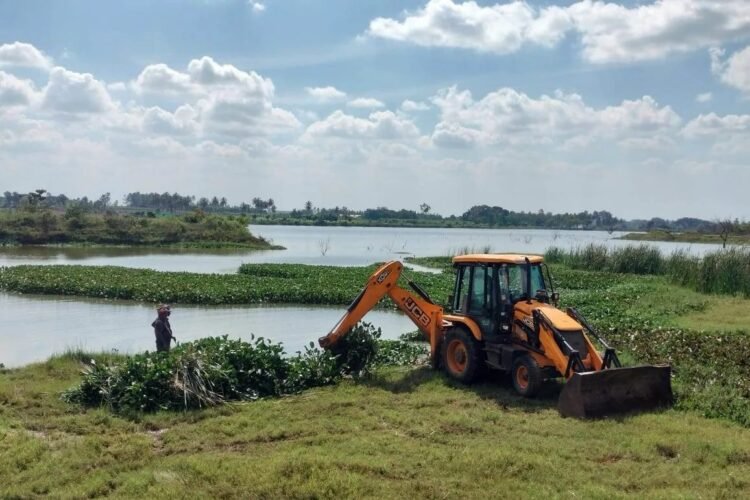Corporate Social Responsibility (CSR) bridges public commitment with grassroots needs, offering both funding and sustained engagement.
By Shaina Ganapathy
In a world characterized by planetary tipping points, climate uncertainty, and increasing socio-economic inequalities, the imperative to rethink conventional development models has never been more pressing. Earth Day 2025 is a poignant reminder—not just of what we need to safeguard, but how we need to work together to do so. And at the heart of this transformation is a potent tool: The Public-Private Partnership (PPP).
But what if PPPs were not merely about infrastructure, financing, or service delivery? What if we re-imagined them as vibrant ecosystems of trust, innovation, and collective responsibility for our planet?
This is no thought experiment. Globally—and increasingly in India—we are seeing the power of cross-sector collaborations yielding quantifiable results. But to capture the moment, we must evolve these partnerships from transactional arrangements into transformative alliances.
From Coordination to Co-Creation
Traditionally, PPPs have been conceived as a pragmatic tool—governments contribute regulatory control, private businesses offer financing and implementation heft. Effective in some areas, this approach usually falls short of tapping the full capabilities of collective mind power and imagination.
Reimagining PPPs involves going beyond coordination to genuine co-creation. It involves creating shared solutions to environmental issues, with every stakeholder not only bringing resources, but also influencing the vision. Companies no longer stand at the margins of development objectives—they become co-designers of sustainability.
This is especially true in rural and underserved communities, where development is nonlinear and multifaceted. Rather than introducing top-down solutions, co-created PPPs involve local communities, learn socio-environmental subtleties, and construct initiatives that are contextual, inclusive, and resilient.
A shining example of this is EcoGram—a multi-stakeholder partnership between corporates, The Anonymous Indian Charitable Trust (TAICT), local governance, and the community in Bettahalsuru Panchayat, North Bengaluru. Plagued by unmanaged waste and water scarcity, this region was transformed through a PPP-driven model that focused on waste, water, and soil management. Since its inception, 1553 metric tons of waste has been ethically disposed of, 6641 trees successfully saved, and 10 villages have adopted the model. This has further helped revitalize lakes and wetlands using floating islands as natural filtration systems.
What makes EcoGram so compelling is its design: a co-owned model where every partner—from government and corporates to NGOs and citizens—plays an active role. The use of QR-coded waste tracking, daily biometric attendance for sanitation workers, and a strong focus on performance metrics has turned EcoGram into a living, replicable blueprint. Already adopted by 10 villages, it proves that with aligned intent and shared accountability, PPPs can indeed build ecological and social resilience.

The Sustainability Dividend
The environmental challenge is no more hypothetical—it’s highly local. The air quality in our metropolises, volatile weather conditions on our cities, drying-up groundwater in our rural areas. Resolving those involves new-fangled PPPs that unleash the dividend of sustainability through three certain pathways:
- Mixing Capitals to Make Impact That Last
Governments usually grapple with fiscal limitations when addressing sustainability objectives. The private sector, however, is progressively orienting itself around ESG metrics and impact mandates. Consolidating these capabilities by leveraging innovative finance—such as green bonds, climate funds, or blended finance models—can unlock long-term environmental investment. - Embedding Technology for Scalable Change
The private sector is a source of technology—whether AI-powered irrigation systems, circular economy business models, or renewable energy technology. Repurposed PPPs provide a high-speed lane for rolling out these solutions at scale, particularly in places where conventional government delivery systems are behind. - Developing Human Capital through Engagement
Sustainability is not a to-do list—it’s an attitude. When PPPs integrate education, capacity development, and behavior change into their models, they generate lasting impact. Awareness campaigns, community conservation initiatives, and youth engagement must become part of our success metrics.
The Role of CSR: A Bridge, Not a Bolt-On
Corporate Social Responsibility (CSR) is particularly well-placed to serve as a bridge between public commitment and grassroots desire. It not only brings funding, but also a mechanism for ongoing involvement.
Consider, for example, holistic health and hygiene programs in government schools. When corporate organizations partner with health professionals, NGOs, and public departments—as in a number of long-standing initiatives—the outcome is not only a better health index, but a replicable model of cross-sector resilience.
Systems Thinking, Shared Accountability
Redesigned PPPs need to be systems thinking-centered. They need to join the dots between climate, health, education, water, waste, and livelihoods—knowing that success in one area catalyzes another.
But above all, these collaborations have to build mutual accountability. Not as a metric of compliance, but as a cultural pledge. Governments need to be nimble partners, not gatekeepers. Corporates need to be long-term partners, not festive donors. And communities need to be empowered co-creators, not passive recipients.
A Call to Reimagine—Together
As we observe Earth Day 2025, we’re reminded that sustainability is not a solo objective. It’s a common horizon. Redesigning Public-Private Partnerships is not just about improving a model—it’s about rebuilding relationships. Relationships that can embrace nuance, evolve with change, and most importantly, drive impact that lasts.
This is not the time of solitary endeavor. It is the time of deliberate collaboration.
Let us join together—not just to preserve what is, but to create together what can be.
***

(Shaina Ganapathy, Head – Community Outreach Initiatives for Embassy Group)







